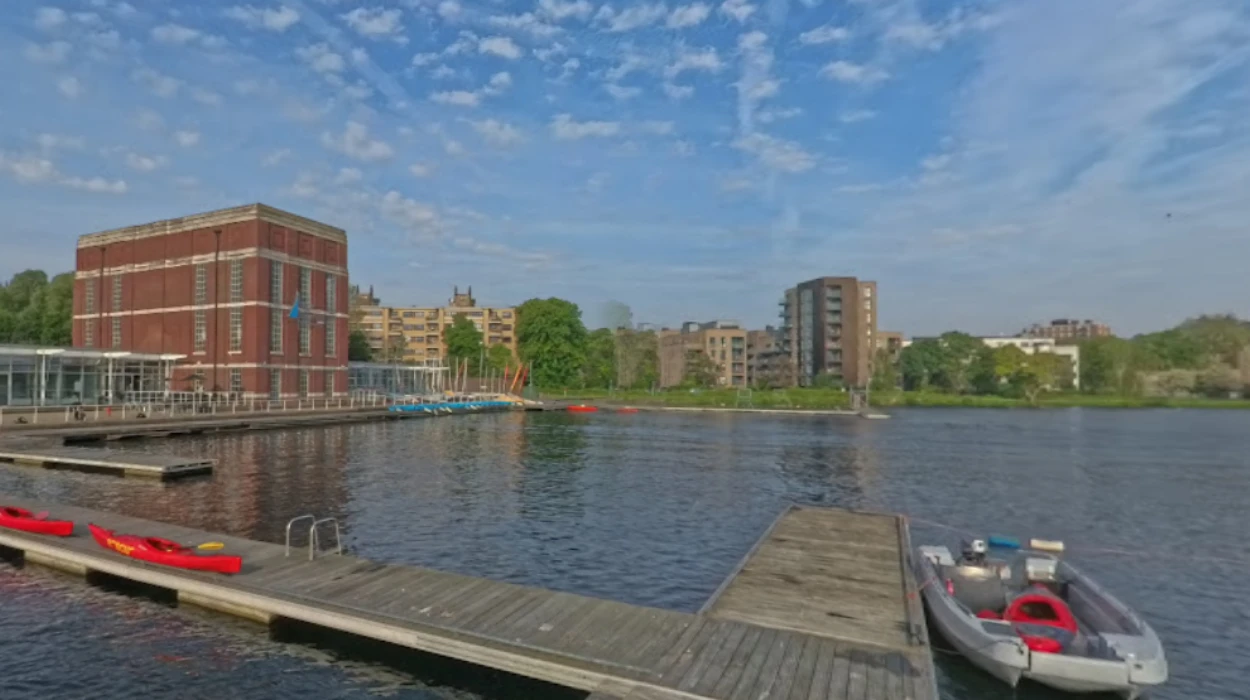Key Points
- Campaigners urge Hackney Council to retain single-sex changing spaces at Clapton’s King’s Hall leisure centre.
- Architect FaulknerBrowns’ redesign includes only mixed-sex changing areas.
- Campaigner Suraiya Khandoker warns changes could lead to voyeurism and unsafe conditions for women and girls.
- Criticism follows a Supreme Court ruling affirming legal sex is defined by biology under current UK law.
- Cllr Carole Williams says the council’s approach considers both sex and gender, and new EHRC guidance is awaited.
- Debate triggered groans and protests from the public gallery during Monday’s cabinet meeting (April 28).
- Green Party Cllr Zoë Garbett supports trans rights and criticises “pitting rights against each other”.
- Works on King’s Hall redevelopment to begin in late 2025 and finish by 2028.
Hackney Council has come under fire from campaigners and residents over plans to remove women-only changing rooms in the redevelopment of King’s Hall leisure centre in Clapton, prompting fierce debate during a cabinet meeting and renewed scrutiny of equality policy.
- Key Points
- Why are campaigners opposing the King’s Hall changing room plans?
- What impact has the Supreme Court ruling had on the debate?
- How did Hackney Council respond to the concerns?
- What was the reaction during the meeting?
- What did other councillors say about the issue?
- When will the King’s Hall redevelopment begin?
Why are campaigners opposing the King’s Hall changing room plans?
At a Hackney Council cabinet meeting on Monday, April 28, campaigners voiced strong objections to proposed mixed-sex changing facilities at King’s Hall leisure centre. Resident Suraiya Khandoker led the deputation, arguing that scrapping single-sex changing rooms would endanger women and girls.
“Single-sex spaces are most favoured by the public,” Khandoker told the council. “Only by having no men in the room are women and girls safeguarded in cubicles in a women-only room.”
As reported by (The Standard), (Joe Steen): Khandoker warned that FaulknerBrowns’ architectural design could result in voyeurism and a lack of safety. She criticised the council’s engagement process, claiming officials consulted every protected group “except sex/pregnancy/maternity” when framing equality objectives.
What impact has the Supreme Court ruling had on the debate?
The meeting took place shortly after the UK Supreme Court ruling on April 15, which confirmed that legal sex under the Equality Act refers to biological sex, not gender identity—even if a person has a Gender Recognition Certificate.
This legal clarification means women-only spaces are, under the law, restricted to those born female, a point Khandoker cited when demanding that Hackney Council amend not just the King’s Hall project but policies borough-wide.
She described a past council motion affirming trans identities—“Trans women are women. Trans men are men. Non-binary people are non-binary”—as an “unlawful statement”.
How did Hackney Council respond to the concerns?
Cllr Carole Williams, cabinet member for equalities, responded that Hackney’s equality frameworks accounted for both sex and gender. She said the council would wait for updated guidance from the Equalities and Human Rights Commission (EHRC), expected later this summer, before finalising any changes.
“But in Hackney we’re clear,” she said. “This borough is not a place for hate, and we will continue to stand by all of our communities, including trans siblings, and against all forms of hate, discrimination and violence.”
Williams emphasised that women’s safety remained a core commitment, referencing existing single-sex support initiatives, but cautioned against framing trans inclusion as a threat to safety.
“I know that can cause psychological harm and increase the risk of threats and violence towards trans people,” she added.
She cited ONS data showing that transgender people in England and Wales are twice as likely to be victims of crime compared to cisgender individuals.
What was the reaction during the meeting?
The remarks prompted audible discontent from the public gallery. One attendee shouted: “Three women a week are killed!” while another accused the council of failing to protect women.
Former Labour candidate Laura Pascal was present in support of Khandoker. Pascal had previously lost the Cazenove by-election following a dispute over alleged “transphobia” and was suspended from the Labour Party until the eve of the poll.
While Khandoker’s deputation followed the Supreme Court’s ruling, a council source told the Local Democracy Reporting Service (LDRS) that her submission was made before the judgement.
What did other councillors say about the issue?
Green Party co-leader Cllr Zoë Garbett addressed the controversy after the meeting. Speaking to LDRS, she said:
“Rights should not compete.”
She expressed support for trans rights and praised Cllr Williams for standing firm during public heckling.
As reported by (The Standard), (Joe Steen): Garbett added, “Trans people just want to live their lives and use the facilities we all enjoy. They deserve dignity and not to be treated like a political football.”
Garbett also criticised Labour Cllr Lynne Troughton for bringing forward the deputation, despite previous cross-party solidarity on transgender inclusion.
In 2023, Hackney councillors passed a motion affirming trans identities, a statement Garbett reiterated with support: “We believe in the dignity of all people, and their right to respect and equity of opportunity.”
When will the King’s Hall redevelopment begin?
Works on the King’s Hall leisure centre are currently scheduled to begin in late 2025, with a targeted completion date in 2028. The final design of changing facilities remains under debate, with pressure mounting on the council to reconcile safety concerns with inclusive access.


